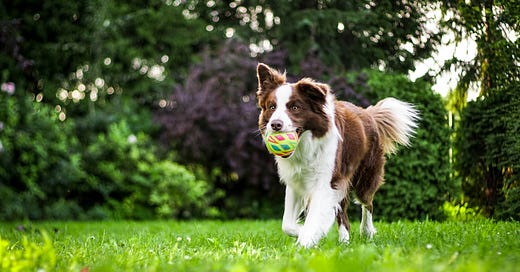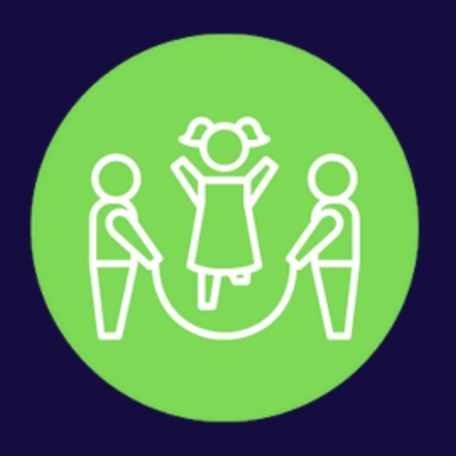15 Playful Toolkit Activities
Full list of playful toolkit activities that help participants use imagination and creativity to enhance collaboration
Dear collaborative discussion friends,
This week we are sharing the full list of 15 playful toolkit activities for easy reference. All the activities in the toolkit have an activity key that indicates the level of the activity (beginner or advanced) and other characteristics using icons. Activities that use playful methods are denoted with the following icon.
If you missed the previous newsletter, Listening to Practice Critical Thinking and Feeling in Discussions, you can access it and our other weekly newsletters by subscribing below.
15 playful activities that use imagination and play to enhance collaboration
1) Activity 1.2 Developing Collaborative Perspective
Activity 1.2 Developing Collaborative Perspective. This activity opens up the conversation and makes visible the need to gain a broader perspective of issues in order to effectively explore and address them. What we individually know and experience is important, what we can’t see is just as important in understanding a complex issue.
2) Activity 2.3 Seeking Innovation
Activity 2.3 Seeking Innovation. This activity describes a simple practice for generating innovative ideas. By using mind mapping, participants describe the landscape of an issue and then use word connections to generate new ideas that can be developed into workable and innovative new directions.
3) Activity 2.5 Cultivating a Willingness to Play
Activity 2.5 Cultivating a Willingness to Play. This activity encourages participants to take themselves less seriously and play with ideas (and one another). When we play, we explore—which offers an opportunity to let down our analytical guard and see with fresh perspectives.
4) Activity 2.6 Building on the Ideas of Others
Activity 2.6 Building on the Ideas of Others. Improvisational comedy has developed a rule of thinking which is called “Yes, and ….” The idea is that you accept what is said and then you add to it. The “yes” confirms the other speaker while the “and” builds on the idea. This process can create an environment of collaboration rather than competition.
5) Activity 2.7 Expanding Thinking with Metaphors
Activity 2.7 Expanding Thinking with Metaphors. Metaphors are unusual comparisons that can help us see things in new ways. This activity stimulates creative discussion by encouraging the group to challenge their assumptions and default thinking.
6) Activity 2.8 Encouraging Bold Imagination
Activity 2.8 Encouraging Bold Imagination. This activity asks participants to describe a positive vision for the future in regard to a complex topic—and to collaboratively imagine the pathways to achieve this desired future. Instead of getting hung up by what groups think to be “realistic” limitations, this activity helps a group to imagine boldly.
7) Activity 2.9 Challenging Taboos to Enhance Creativity
Activity 2.9 Challenging Taboos to Enhance Creativity. Our imagination is often restricted by internalized taboos. While these restrictions may be appropriate in some cases, we are often unaware or subconsciously influenced by taboos. Uncovering taboos that affect us can provide creative breakthroughs for how we think about issues.
8) Activity 3.4 Developing Comfort with Ambiguity
Activity 3.4 Developing Comfort with Ambiguity. This activity is designed to encourage participants to grapple with “no win” situations. Through discussion, participants will explore seemingly simple moral dilemmas which will actually expose the complexity of decision-making.
9) Activity 3.7 Practicing Generosity of Interpretation
Activity 3.7 Practicing Generosity of Interpretation. This activity helps participants develop a practice of patience and generous interpretation during discussions. By crafting and practicing specific “mind tricks,” participants can learn to listen and engage in discussions with a more generous mindset.
10) Activity 4.3 Understanding Perspectives on a Continuum
Activity 4.3 Understanding Perspectives on a Continuum. This exercise makes visible a range of views on an issue as well as how hard it is to take on the view of someone else. It helps participants become aware of how strongly held views can lead them to be dismissive of the views of others.
11) Activity 4.7 Recognizing Power Imbalances in Decision Making
Activity 4.7 Recognizing Power Imbalances in Decision Making. This activity makes visible the ways in which power works in society but more particularly, in the context of joint decision-making. It examines how power reinforces stereotypes, but it also offers opportunities to challenge traditional power dynamics.
12) Activity 4.9 Taking the Perspective of Another
Activity 4.9 Taking the Perspective of Another. This activity helps participants use information, such as the values, personality traits, life experiences, and knowledge of another to view a situation from the perspective of this other person and to understand how these facets influence the choices others make in a given situation.
13) Activity 5.1 Identifying Your Civic Passion
Activity 5.1 Identifying Your Civic Passion. This activity provides an opportunity for participants to reflect on which civic issues are most important to them individually and how they might negotiate or advocate for these issues within a larger group. It uses a playful, competitive model to get groups thinking together.
14) Activity 5.6 Building and Shifting the Discourse
Activity 5.6 Building and Shifting the Discourse. This activity uses memes to introduce participants to the concept of discourse. Participants will be challenged to change the world by changing our discourse about the world.
15) Activity 5.7 Practicing Collaboration with Others
Activity 5.7 Practicing Collaboration with Others. Three presenters pitch campus initiatives or community programs they want to keep, get rid of, or flirt with in order to create their ideal shared community. Participants discuss their own ideas while building a collaborative city out of LEGOs.
Upcoming Events
Mark your calendars! Our next community gathering is Thursday, June 20th at 12 pm (EDT). All are welcome! Register here.
We also have a community gathering planned for Thursday, July 18th at 12 pm (EDT). All are welcome! Register here.
Looking forward to collaborating,
Ritu Thomas & the Collaborative Discussion Team





